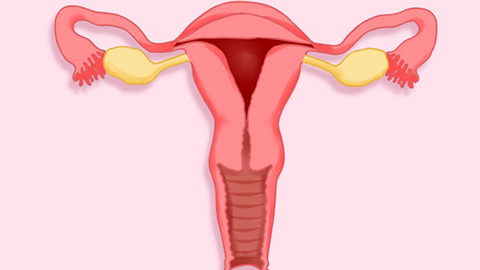What causes an enlarged uterus?
Generally, an enlarged uterus may be caused by pregnancy, incomplete postpartum uterine involution, uterine hypertrophy, adenomyosis, uterine fibroids, or other reasons. It is recommended to seek timely medical consultation to identify the exact cause and receive appropriate treatment under a physician's guidance. Detailed analysis is as follows:

1. Pregnancy: After conception, as the embryo develops inside the uterus, the uterus gradually enlarges with gestational age to accommodate the fetus and associated structures. This is a normal physiological process that does not require special treatment. Regular prenatal check-ups are necessary to monitor fetal development and uterine changes. Adequate rest and sufficient intake of nutrients such as protein and vitamins are also recommended during pregnancy.
2. Incomplete Postpartum Uterine Involution: If the uterus fails to return to its pre-pregnancy size after childbirth, it is often due to weak uterine contractions or retained placental tissue, accompanied by prolonged lochia and lower abdominal discomfort. Applying heat to the lower abdomen can help promote uterine contraction. Medications such as oxytocin injection, motherwort granules, and new hualian granules may be used according to medical advice to aid uterine recovery.
3. Uterine Hypertrophy: Chronic inflammation or ovarian dysfunction may lead to thickening of the uterine muscle layer, resulting in uniform uterine enlargement, often accompanied by increased menstrual bleeding. Patients should follow medical instructions to use medications such as cefixime dispersible tablets, levofloxacin hydrochloride capsules, and metronidazole tablets to control inflammation. Maintaining good personal hygiene and avoiding unclean sexual practices are also important to reduce ongoing uterine irritation.
4. Adenomyosis: Endometrial tissue invading the uterine muscle layer causes thickening of the uterine muscle and uniform enlargement of the uterus, often accompanied by progressive dysmenorrhea and increased menstrual flow. Patients may follow medical advice to use medications such as dydrogesterone tablets, norethisterone tablets, and gestrinone capsules to alleviate symptoms.
5. Uterine Fibroids: Abnormal proliferation of uterine smooth muscle cells forms fibroids. As fibroids grow, they may cause overall enlargement of the uterus, accompanied by menstrual irregularities and abdominal masses. Small fibroids can be monitored regularly, while larger fibroids or those affecting quality of life may be treated with hysteroscopic myomectomy to remove the fibroids and restore normal uterine shape.
In daily life, it is important to keep warm during menstruation, avoid strenuous exercise, maintain a regular sleep schedule, and reduce熬夜 (staying up late). Diet-wise, it is recommended to limit intake of spicy and greasy foods, consume more fresh vegetables and fruits, maintain a positive mindset, and avoid excessive anxiety to support uterine health.





